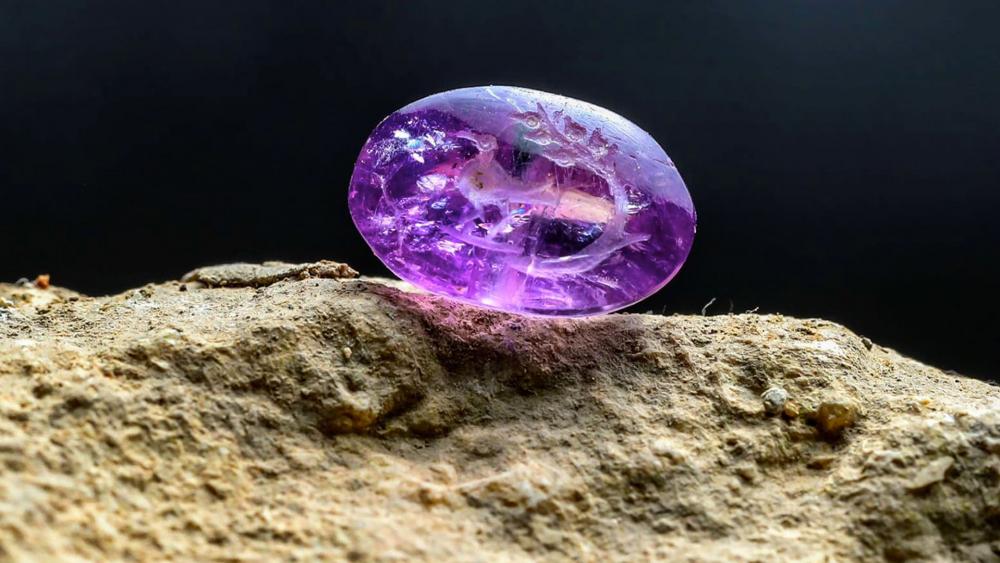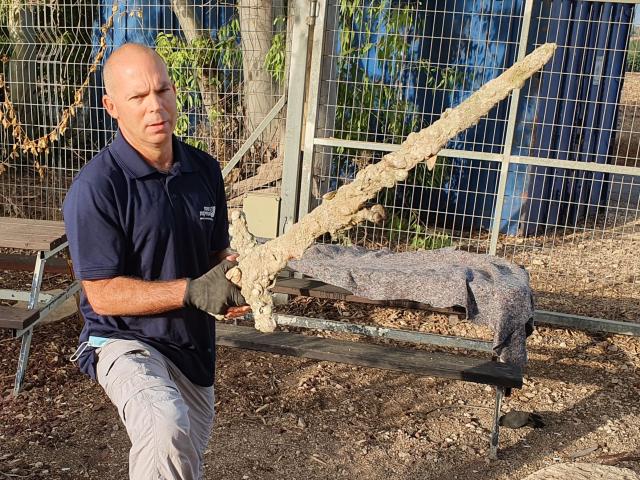Just north of the City of David (ancient Jerusalem), archaeologists believe they have found the first of its kind engraving on a precious gem of a biblical plant known to many as the Balm of Gilead.
Deep underground in a 2,000-year-old drainage ditch next to Jerusalem’s Western Wall, archaeologists say a rare artifact from Second Temple times was uncovered.
“It is a stone seal made of semi-precious amethyst stone with an engraving of a dove and a branch of a tree with fruit on the branch,” said Eli Shukron, former archaeologist of the Israel Antiquities Authority.
“What was surprising was that the branch is a branch with fruits that are not recognized from other seals from that period,” Shukon explained.
The seal was found while archaeologists and volunteers were sifting the remains from the drainage ditch at the Emek Tzurim National Park operated by the City of David.
“Once we found the seal with the branch and the fruit, we hypothesized that it was the biblical persimmon fruit plant as mentioned in the Bible and in the sources of the Second Temple period and the Byzantine period,” Shukron said.
This biblical persimmon plant is not related to the orange persimmon fruit of today. It was known in ancient times by several names: Bosem, Balsam and the Balm of Gilead
“Jerusalem’s primary drainage channel was built under the pilgrimage road. The pilgrimage road started from the Pool of Siloam in the City of David and went up to the Temple on the Temple Mount of the Second Temple period. Apparently, this ring with the seal fell into the drainage ditch 2,000 years ago," Shukron said.
For 1,000 years, ancient Hebrew farmers were the only ones in the world known to cultivate this exotic plant, using it for medicinal and cosmetic purposes.
Guy Erlich has been working to revive that biblical agriculture and is the only one in the country growing the biblical persimmon. That’s why Shukon took the stone to Erlich’s farm to show it to him.
Erlich called the find “stunning.”
“I see here a branch of the biblical persimmon plant, the Balm of Gilead. It’s just amazing! Someone took a branch of the Balm of Gilead and drew it on the stone. It does not remind me of any other plant I know,” Erlich said.
Biblical and historical sources also say it was used during the Second Temple period as one of the more expensive ingredients for producing the Temple incense.
“This is the same persimmon that is identified with the biblical persimmon. It is the persimmon that served as the first of the incense ingredients of the Temple and as the anointing oil of the kings and priests,” Erlich explained.
Erlich currently has 10,000 Balm of Gilead trees at his farm near the Dead Sea. He markets perfume and essential oil from the trees. He also grows frankincense and myrrh.
“There is a wall-to-wall agreement that this is the plant but there is little graphic depiction of it and what you have brought me now is really a greeting from history,” he said to Shukron.
“I felt like someone wrote me a note with a drawing of the fruit of my persimmon plant and sent it to me,” Erlich said.
Why does Judaism matter and how is it connected to Christianity? Learn more here.
Need prayer? We’re available 24/7. Call (800) 700-7000 or request prayer.
Learn why Truth Matters at CBN News.Did you know?
God is everywhere—even in the news. That’s why we view every news story through the lens of faith. We are committed to delivering quality independent Christian journalism you can trust. But it takes a lot of hard work, time, and money to do what we do. Help us continue to be a voice for truth in the media by supporting CBN News for as little as $1.











 Support CBN News
Support CBN News









